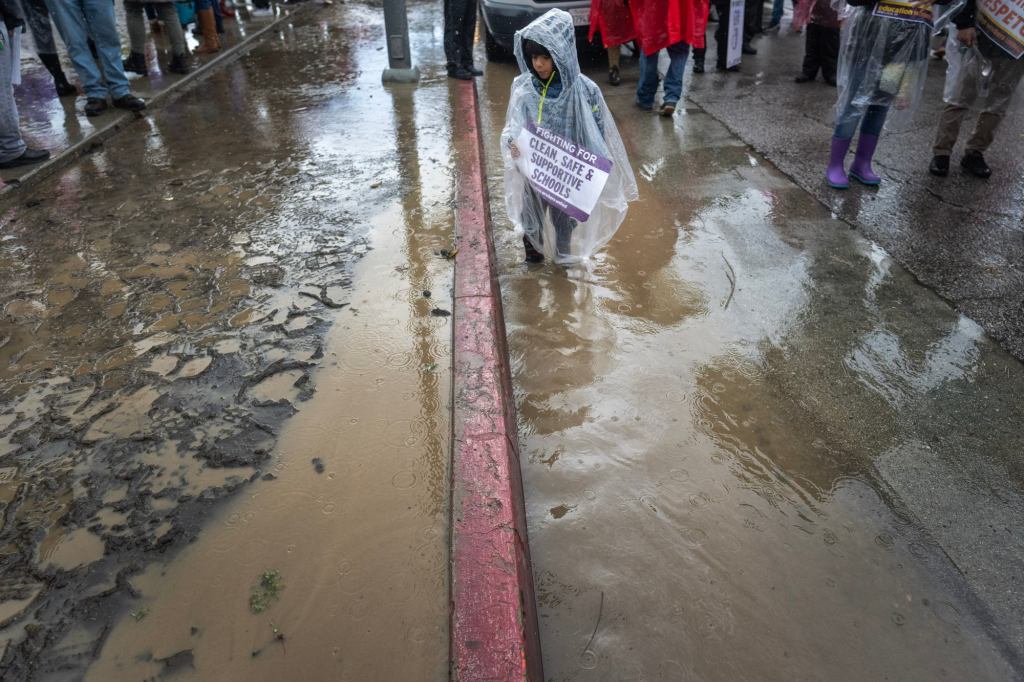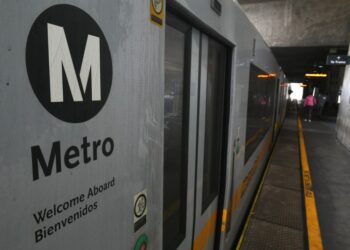For Service Employees International Union Local 99 member Paola Fonseca, staging a strike this week to draw attention to the plight of some of the lowest-paid employees in the Los Angeles Unified School District is an action worth standing up for.
At the same time, she’s concerned that three days of school closures is hurting students with special needs – including her son, a 6-year-old with autism who struggles to cope when their normal routines are disrupted. And not being in school means her son, who is nonverbal, is not getting the speech services he needs.
“Things like (school closures) clearly throw off his whole schedule and he doesn’t get the services,” said Fonseca, a special-education assistant at Herrick Elementary School in Sylmar.
“He has a hard time adjusting because he’s very routine-based,” she continued. “But if he misses a day due to a strike … getting him back on his regular schedule is a challenge not just for us or him, but his teacher too, when he (returns).”
Another parent, whose 12-year-old daughter has special needs and attends Hale Charter Academy in Woodland Hills, said missing even a day of school can be harmful.
“For somebody who struggles in intellectual capability, three days is a big deal,” said parent Jeremy Kahn, who said he and his wife can’t afford a private tutor. “We rely on the school district to provide the services.”
It’s not only special-education students who may be struggling with interruptions brought on by this week’s strike, though.
Being home again on what would otherwise be a regular school day could retrigger negative memories for students who struggled with isolation or distance learning during the first part of the COVID-19 pandemic, one education expert said.
On the other hand, another education expert said not all impacts of the strike may be negative and suggested that this week could serve as a lesson to students about the power of collective action.
Pedro Noguera, dean…
Read the full article here







